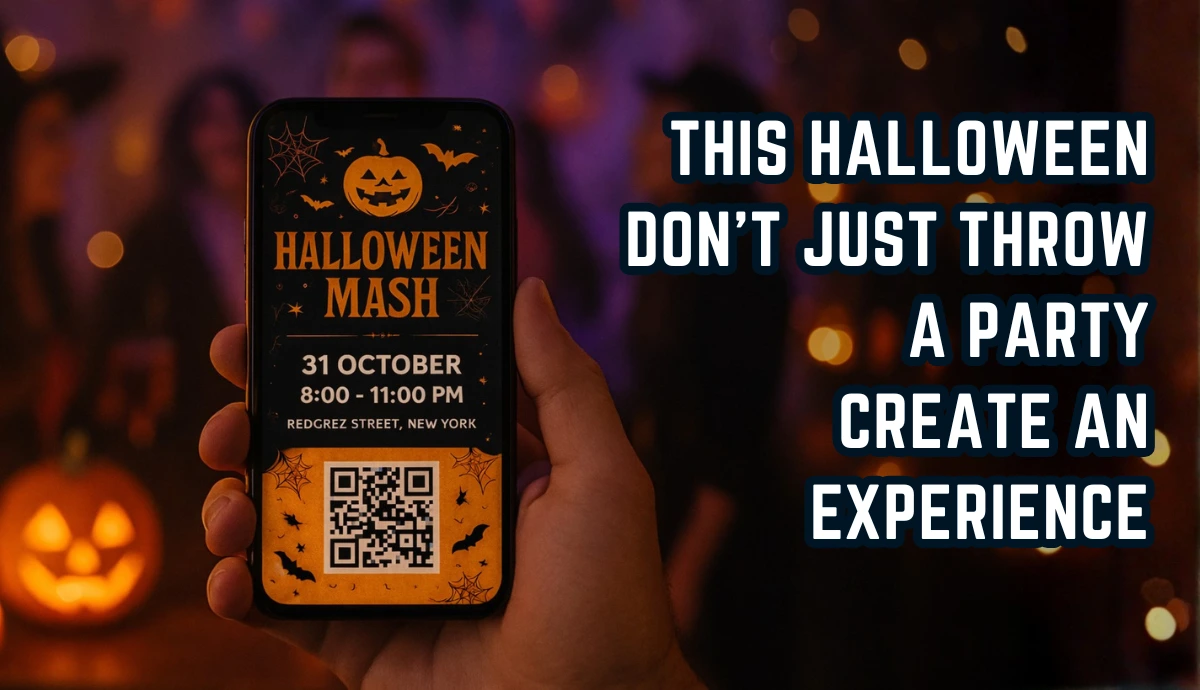Virtual event hosting is no easy feat. It comes with unique challenges and requires new perspectives to succeed. As a host, you must ensure you provide the same care and attention to a virtual event as an in-person one.
Join us as we explore the benefits of virtual event hosting, and check out the steps and best practices to produce value-added, engagement-driven experiences.
A. What is a virtual event?
A virtual event leverages online platforms and technology to host events digitally as opposed to traditional in-person gatherings. Virtual event hosting has the same potential as in-person events for engagement, interaction, and information sharing among participants, regardless of geographical restrictions.
Virtual or digital events can be organized in various forms, such as webinars, conferences, trade shows, and team-building activities. The key value of a virtual event lies in its ability to bring participants together in a shared virtual environment where people can engage in discussions and networking opportunities from the comfort of their locations.
B. What are the perks of hosting virtual events?
Virtual events incorporate multimedia elements such as interactive features and advanced technologies to create immersive event experiences.
Here are some of its biggest benefits.
1. Accessibility
Anyone with a stable internet connection and appropriate electronic devices such as mobile phones, tablets, laptops, or PCs can easily attend or even organize a virtual event. You can meet and interact with people from all over the world just by clicking a button.
Unlike an in-person meeting, you don't have to worry about transport, stay, and other logistics, as there are none in virtual meetings. These meetings are accessible everywhere and for everyone, including people with disabilities, who can use assistive technologies like sign language interpreters, closed captions, and other accessibility features. This proves virtual events are not only easily accessible but also inclusive.
2. Reduced cost
As an organizer, if you’re planning to host an in-person event, you must invest in a lot of logistics, including venue, catering, equipment, and security. Additionally, you’ll have to worry about tight budgets and on-site uncertainties.
For instance, if you’re hosting an event for 300 people, you’ll have to budget for a sitting setup, tea breaks and refreshments, a webcam, a mic, and other technical equipment.
On the other hand, virtual event hosting doesn’t demand much technical equipment. The main focus will be on generating e-tickets, attendee counting, and online promotion, significantly reducing the cost of the virtual event by about 70%. Additionally, due to the lower cost of participation, virtual events mostly attract more patrons and exhibitors.
3. Greater reach
Virtual events help you reach masses of people beyond the barriers of geographical restrictions, where people from all over the world can attend. Moreover, when virtual event attendees share content and information on social media, your event gains even more exposure.
Since virtual events have greater accessibility, they can attract a diverse audience, contributing to a more inclusive and diverse community of participants.
4. Increased attendance, interaction, and engagement
Virtual events can improve attendance rates since attendees can join from the comfort of their homes or offices. Attendees who otherwise would have been unable to attend due to logistical constraints can now attend the event easily.
Additionally, virtual events frequently involve interactive features to help you organize engaging sessions. Participants can interact with the presentation via chat rooms, opinion surveys, and Q&A sessions.
Breakout rooms are also available on virtual platforms to encourage smaller group discussions, enabling networking and collaboration. Activities in a virtual event are easier to implement and manage.
5. Flexibility and improved content delivery
Virtual events offer a lot of flexibility regarding scheduling and format. For instance, organizers can include pre-recorded sessions for attendees to watch at leisure or broadcast live sessions at various times throughout the day to accommodate different time zones.
Event planners can also broadcast their event over several days or weeks instead of fitting everything into a single day. In the traditional approach, in-person events can be overwhelming, with numerous activities and a vast amount of information to manage in a limited period.
6. Fewer risks
Due to the flexibility of virtual events, event risks, such as adverse weather conditions, overcrowding, or technical issues, are reduced. Virtual events are much more predictable without any worry about weather interruptions and on-site issues and can be planned more precisely.
However, a prime concern is the device’s low battery or poor internet connection. But this can be tackled easily with available backups. You still get a recorded session if you don’t have a backup as an attendee.
7. Easier for data collection
Virtual events are generally better for data collection where organizers can track prime participants’ behavior, such as engagement, identify popular sessions and speakers, and collect feedback via surveys or live polls.
Organizers can utilize this information to make data-driven decisions about future events, such as restructuring sessions, better advertisement, and promotion to optimize the attendee experience.
C. How to host a virtual event?
We’ve created a detailed step-by-step guide to help you in your virtual event-hosting journey.
Have a look.
1. Define your audience
The first and most important step is identifying and defining your target audience for the virtual event. Every aspect of your event, such as your chosen speakers, topics, and time, will be defined by your audience.
Here are some practical ways to define your audience based on some crucial criteria:
i.Demographic
Consider the following attributes to understand the demographics of your audience:
- Age: Make an effort to understand the generation to which most attendees belong. Are they mostly GenZ, millennials, GenX, or Baby Boomers? Knowing this will help you tailor ways to target your audience for event registration and promotion.
- Geographical location: If it’s a global event, you need to understand your audience’s geographic location to plan your event's schedule.
- Income: Understanding attendees’ income levels helps you price event tickets effectively. This will help you be conscious of your audience's ability while planning out tickets and the scope of the event.
- Education: If you’re hosting a professional event, it’s important to understand the education level of your audience. This will help you plan the content accordingly.
- Occupation: Knowing your audience‘s occupation is a basic and essential piece of information, especially if you’re delivering professional or educational content.
ii. Target market's goals
Understanding your target audience’s goals will help you plan your content to align with their goals for attending. This will help you strategically curate speakers and design workshops around those needs.
Here are some of the outcomes:
- Training and development
- Workshop on a particular topic or niche
- Networking workshops
- Certificate delivery
- Best practices within your industry
iii. Psychographics of your target audience
Understanding psychographics will enable you to dig deeper into how your audience thinks. Consider the following attributes:
- Personality - outgoing/shy, thinkers/do-ers, employees/entrepreneurs, detail oriented/focuses on the larger picture
- Attitude and behavior
- Values
- Interest/hobbies
- Lifestyle
Note: You can gather all this information from pre-event surveys by asking users to email or embed it during registration.
2. Choose your event goals
After you’ve identified your ideal audience profiles, it’s time to choose your virtual event goals.
Here are some examples:
i. Event goals for organizers
The efforts for your virtual event may not be as fruitful if you don't know what you want to achieve out of the event. You can start with broader goals like the ones mentioned below and narrow them down based on the specifics of your event:
- Enhance brand awareness
- Share information, ideas, or new research
- Launch a new product
- Hire new resources
- Sell a product or service
ii. Event goals for participants
Event goals should not only relate to the organizers. Considering participant's needs and goals is also important. Understanding each participant’s journey allows you to plan and host a more successful virtual event.
Some common attendee goals include:
- Looking for job opportunities
- Networking
- Learning new skills
- Information about a product or service
3. Promote your virtual event
Whether you partner for a paid promotion, post live social media clips during the event, or create drip campaigns, it’s essential to tap into your network and promote your event aggressively.
The promotion should begin before the event, typically 3-4 weeks before, during, and even after it ends, to help you create and maintain the buzz.
Here are some ways to do it:
- If you don’t have enough time and talent to create marketing content, you can use AI-powered tools like ChatGPT. It can significantly reduce the effort required to develop marketing collateral while reducing the time to market for your event.
- AI tools can help you quickly create landing pages, social media posts, press releases, and email campaigns designed quickly and effectively. You can even use it to brainstorm ideas and create tailored content.
- Once the content is ready, spread the word on various social media channels such as Facebook, LinkedIn, YouTube, and any other platforms on which you have your audience.
- If your brand has a blog or a video podcast series, you can include relevant CTAs at the bottom of your blog articles. You can use this to add a quick shout-out at the end of your blog or podcast.
- Encourage past attendees and other stakeholders to promote your event by offering them unique promo codes to share with their network. You can also create marketing collateral with your logo and image to maximize marketing efforts.
4. Prepare the attendees
Not all of your attendees are as tech-savvy as you expect them to be. Moreover, there are different types of video conferencing tools and event technology. It’s best to create a guide for attendees explaining how to access the event, sessions, and more.
Better still, encourage attendees to practice launching sessions and try out the features before the event starts. This will help decrease the attendee stress and the flood of questions on the day of the event. You can even record an introduction video educating the attendees on using the tool.
5. Keep the attendees engaged
Organizers have the most difficulty keeping the audience engaged in a virtual event. That’s why it’s important to plan the event to keep the attendees involved and active rather than making them sit for hours and listen to speakers.
Some of the best ways to do this are to employ live polling and Q&A sessions and encourage attendees to discuss among themselves in breakout rooms. Social media is also a great engagement tool where participants can post pictures of their favorite takeaways from the event using a hashtag.
6. Post-event analysis
A post-event analysis is important for reviewing the event to identify areas for improvement and gather insights for future planning. By analyzing attendee surveys, organizations can gain valuable insights into attendee satisfaction, event impact, and overall effectiveness. It also enables organizers to celebrate success, recognize achievements, and address any issues or concerns attendees raise.
Some of the crucial virtual event metrics include:
- Number of attendees
- Demographic attendee information
- Session registration
- Post-event survey results
- Session feedback
- Session ratings
- Social media engagement and reach
D. Hosting memorable virtual events with Ticket Generator
Virtual event hosting might be overwhelming for some planners, but with the right ideas and strategies, any event can be organized smoothly. For exceptional results, ensure you have a tool to support you in your event planning journey.
Ticket Generator is an all-in-one event management tool that helps with your registration and ticketing needs and streamlines event planning.
To learn about our successful virtual events, sign up now.






.gif)






